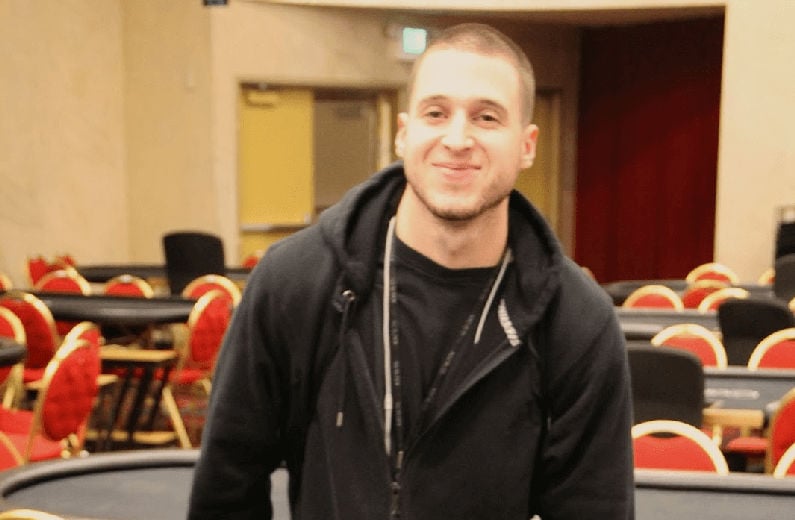Poker pro Rich Alati endures 20 days of a 30-day sensory-deprivation prop bet against fellow pro Rory Young, winning $62,400 when he accepts a buy-out offer from Young.
An unusual $100,000 proposition (“prop”) bet between high-stakes poker pros Rich Alati and Rory Young over whether Alati could endure being confined in a pitch-black room for 30 days has ended early. The confined Alati won the wager after accepting a buy-out offer from Young 20 days into the unusual mental-endurance challenge.
According to a feature by Darren Rovell at the Action Network, Young offered Alati a $62,400 buy-out payment after judging that Alati was likely to endure the full 30 days of the original solitary-confinement wager. Alati stood to collect $100,000 had he successfully stayed in the room for the full 30 days, while Young would have collected the $100,000 from Alati if Alati had been unable to complete the 30-day stress test.
“At the last food drop, he was stronger than ever,” Young told Rovell and the Action Network. “I underestimated his mindset, his resolve. I’m not disappointed I made the bet, I thought I had the better side, but he has exceeded all my expectations.” Young made the buy-out offer during the latest of a series of sporadic food deliveries to Alati’s darkened space; those food drop-offs occurred at irregular, three-to-six-day intervals to keep Alati from accurately judging his length of stay in the isolated space.
Formal contract defined wager
Rovell and the Action Network previously obtained the formal, 11-page contract defining the terms of the prop bet. According to the contract, Young was absolved from blame for any adverse health problems incurred by Alati as a result of the wager, including “death, disability, blindness, diminished vision, loss of any eye function,” and more. The contact even included the creation of a three-person arbitration panel was established in case there were any disputes about the wager.
Also peripherally involved in the wager was Alati’s father, Richard, who was allowed to keep tabs on the prop bet’s progress without offering any communications with his son. The senior Alati admitted he was against his son’s gamble, but conceded it was an aspect of his son’s gambling-centric lifestyle.
The primary health concerns raised by most onlookers centered on possible eyesight damage or psychological problems owing to the total-blackness confinement. Both concerns may have been exaggerated; Alati’s eyesight may remain acutely light-sensitive for some time, and his willful endurance of the confinement likely reduced his risk of any “stir-crazy” aftereffects, even further eased by the knowledge that he could voluntarily end the wager at any time.
Prop bets a gambling-world staple
Such proposition bets have been a part of the gambling world for decades, though this one, because of the possible serious health risks, drew more criticism than most. Weight-loss challenges for sizable sums are a staple of the niche, as are outcome-oriented tattoos and the like for some unfortunate losing bettors.
One of the most famous weird wagers in prop-bet history occurred in 2016, when high-stakes poker player and sports bettor Brian Zembic accepted a wager to get breast implants and wear them for a year. This was another $100,000 wager, and Zembic not only won the bet but continued to wear them after collecting the payout.
As for Alati, he managed to endure an unpleasant situation far better than some others. In the 1990s, prominent poker pro and recent Poker Hall of Fame inductee John “Johnny World” Hennigan accepted a wager to spend six weeks in Des Moines, this at a time when online gambling didn’t exist and the Des Moines region had no casinos. Hennigan, a betting-action junkie, stayed only two days in Des Moines before conceding the bet and flying back to Las Vegas.
